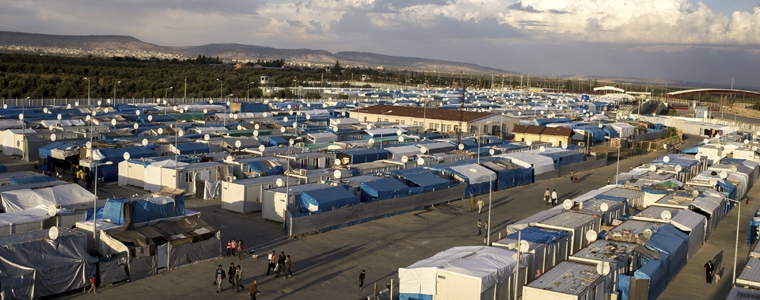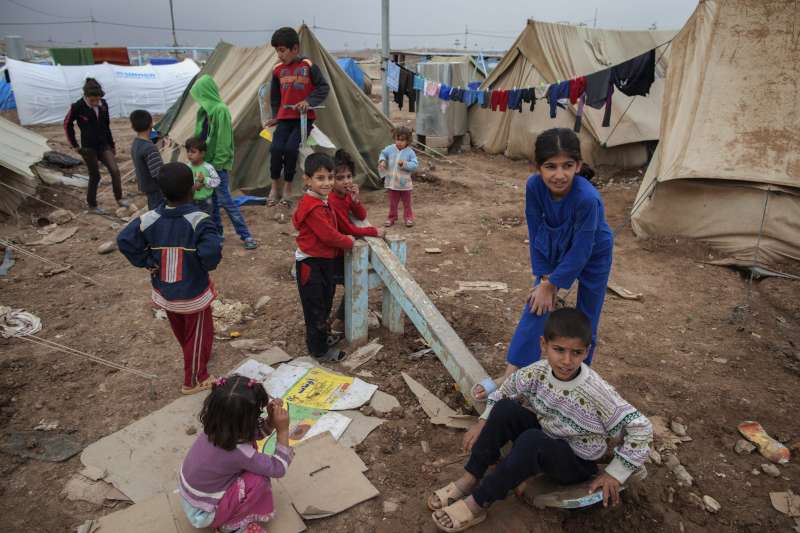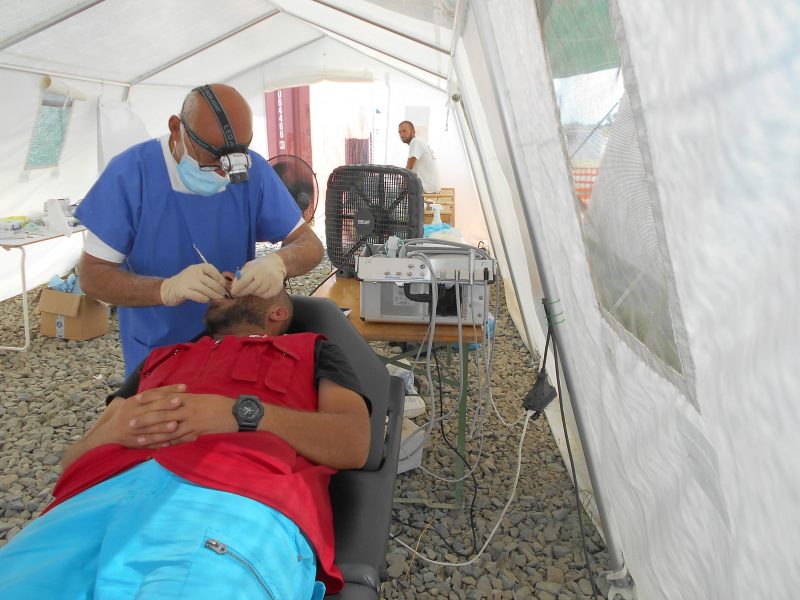Following Kyriacos Hajikakou’s article last week in Rye News, he gives here further background information gleaned from the trip that he and his wife Diana took recently, volunteering their dentistry experience and skills in refugee camps in Northern Greece.
There are 25 camps which are funded by EU money but run by the Greek government. This number is not fixed, camps have been closed and moved and Petra, a camp we visited near Mount Olympus, was due to be relocated as it was so cold.

Various charities and NGOs provide support with healthcare, dental care, legal advice and education. Some of them are well known such as the UNHCR and the Red Cross, but others may not be so familiar – the Syrian American Medical Society for example or the group that we went with – the Health Point Foundation, which is a small, recently founded organisation that you probably haven’t come across before.
Each camp is a separate entity run by a director who is sent out for a six month stint from Athens. These directors vary in attitude, for example the fires for outdoor cooking are tolerated by some but forbidden by others. Refugees are supplied with three meals a day and bottled water. The food comes in take-away containers and although it is perfectly acceptable, it’s no substitute for home-cooking.
At Diveni, one lady kindly brought us a lunch she’d prepared and enterprising souls at Softex have set up a cafe that serves excellent falafels, a traditional Arab dish, usually made from ground chickpeas (sometimes lentils or split broad beans) with the addition of spices, formed into little balls and fried.
As we left Diveni, we saw men gathered around a brazier which was supplying some much needed warmth. Heating is not possible in the tents. The tents pitched inside industrial buildings have some protection from wind and rain but those which are outside are subject to all the vagaries of the weather as we discovered when we had to bundle on layers of clothing to stay warm.

Children in some camps receive schooling, some don’t. It depends on whether a charity or group of volunteers has come forward. In one camp children spoke to me in fluent Greek, in another a Swiss team was teaching English and at another the children were learning Spanish. I had to rely on translators when dealing with most patients though some spoke good English.
However, the translator was sometimes busy elsewhere so the Arabic words I learned for open (eftah) and close (seqrt) proved a useful if very basic way of communicating with the patient. It could prove confusing when patients would shake their heads up and down to indicate no, it was important to clarify before proceeding!
Although the camps are basic they do provide food, water, shelter and sanitation. Everyone who lives in a camp has been accepted as a bona fide refugee. Not everyone is so fortunate, we were told that there was a sizeable group of migrants in Thessaloniki living rough because they had not been accepted as refugees. However, the status of those in the camps can be complicated.
A family at one camp were stuck in a bureaucratic nightmare. The husband, an Arab, had German nationality, his wife and two young children were Syrian and had been forced to flee to Turkey for safety. There another child had been born but because he had been born in a safe country he was not considered to be a refugee.
The husband had chosen to leave Germany and live in a tent with his family while desperately trying to sort out the baby’s legal status made no easier by the fact that the smugglers who had taken the wife and children to Greece had stolen their money and the baby’s identity documents.
For reasons I could not begin to follow, the father was thinking of renouncing his German nationality which he thought might make the family’s chances better. This was only one desperate story among so many. The refugees were expecting to go on to northern Europe, Germany was the destination most often mentioned. Their expectations of what their lives would be seemed very high and one could only wonder whether these would be fulfilled.
Photos: Kyriacos Hajikakou and library images




Thank you for reminding us that the refugee situation goes on even while this country tries to make since of its voting to leave Europe and Trump struts in the US. My aunt Kathy worked for several years in refugee camps in Greece after the Second World War. Not a lot has changed as far as I can see from your account of living conditions but the nationalities have changed. As long as our affluence in Europe is beamed around the world people will seek to escape their war torn countries and find a new home. As my aunt’s refugees did so many years ago.